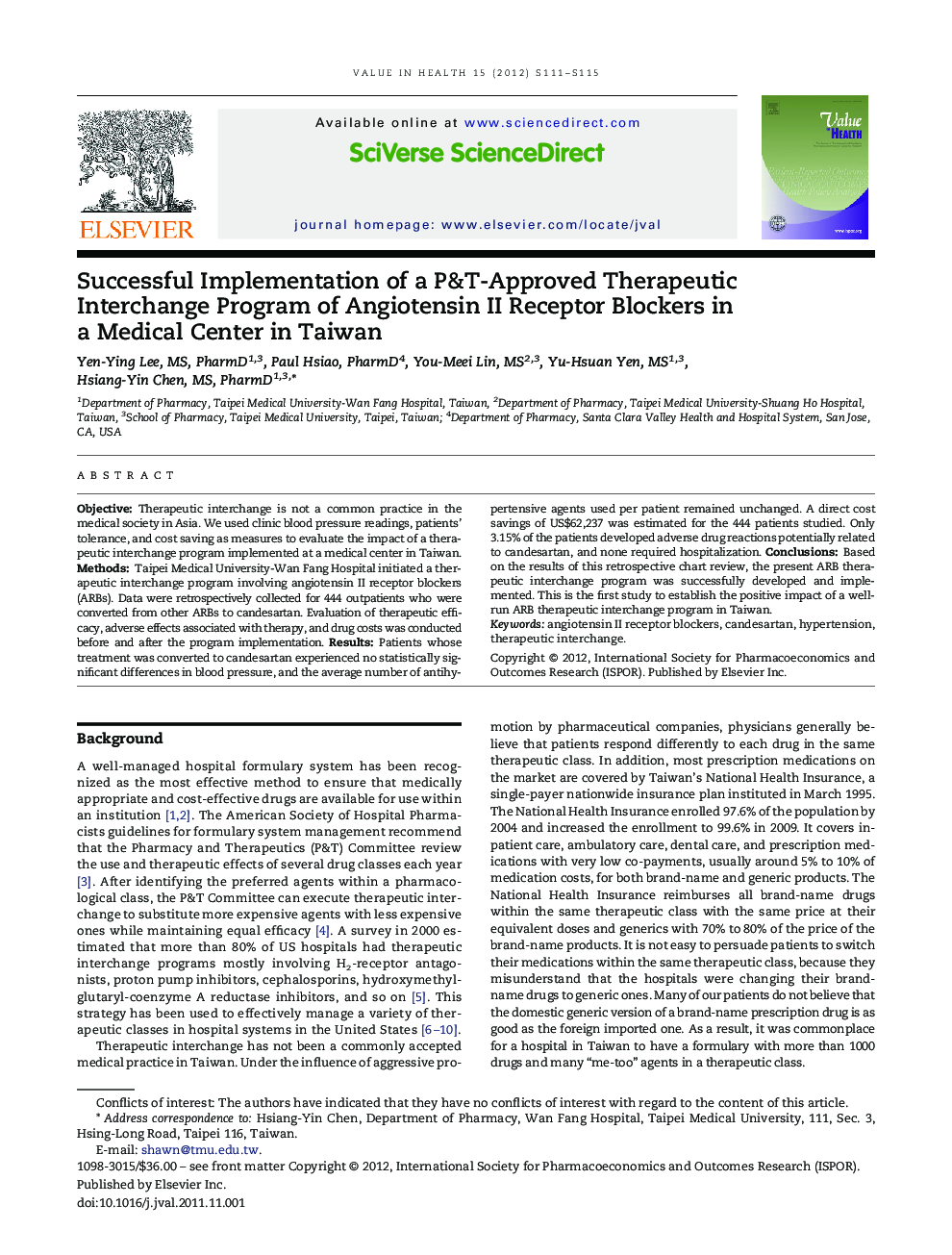| Article ID | Journal | Published Year | Pages | File Type |
|---|---|---|---|---|
| 987783 | Value in Health | 2012 | 5 Pages |
ObjectiveTherapeutic interchange is not a common practice in the medical society in Asia. We used clinic blood pressure readings, patients' tolerance, and cost saving as measures to evaluate the impact of a therapeutic interchange program implemented at a medical center in Taiwan.MethodsTaipei Medical University-Wan Fang Hospital initiated a therapeutic interchange program involving angiotensin II receptor blockers (ARBs). Data were retrospectively collected for 444 outpatients who were converted from other ARBs to candesartan. Evaluation of therapeutic efficacy, adverse effects associated with therapy, and drug costs was conducted before and after the program implementation.ResultsPatients whose treatment was converted to candesartan experienced no statistically significant differences in blood pressure, and the average number of antihypertensive agents used per patient remained unchanged. A direct cost savings of US$62,237 was estimated for the 444 patients studied. Only 3.15% of the patients developed adverse drug reactions potentially related to candesartan, and none required hospitalization.ConclusionsBased on the results of this retrospective chart review, the present ARB therapeutic interchange program was successfully developed and implemented. This is the first study to establish the positive impact of a well-run ARB therapeutic interchange program in Taiwan.
